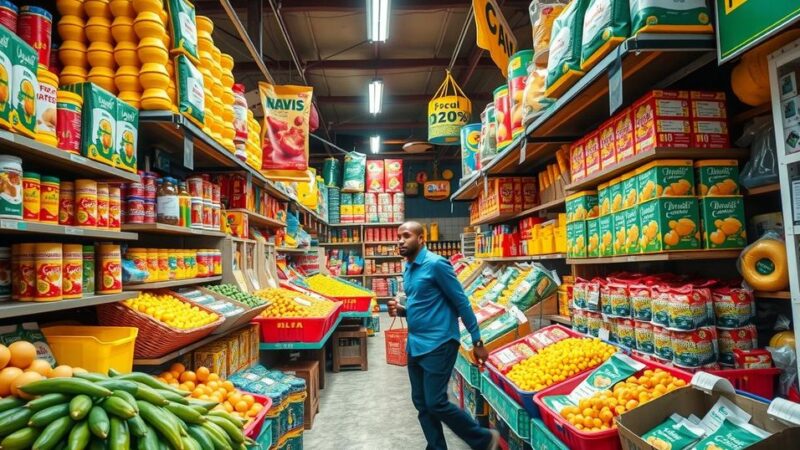Morocco’s Central Bank has cut the benchmark interest rate to 2.25% to manage inflation, surprising many analysts. This decision aligns with the bank’s goal of supporting economic activity ahead of hosting the 2030 FIFA World Cup. Recent rainfall has generated optimism for agriculture, while cultural adjustments address livestock challenges due to drought.
Morocco’s Central Bank has recently made a noteworthy decision to reduce the key interest rate to 2.25% from the previous rate of 2.5%. This marks the second consecutive rate cut, a move that came as a surprise to many analysts who did not anticipate this shift from two of the nation’s leading financial institutions. Prior rate reductions occurred in June and December of 2024, reflecting the bank’s proactive approach to manage inflation effectively.
The central bank, Bank al-Maghrib, indicated that inflation should remain within targeted levels, with predictions suggesting it will stabilize around 2% over the next two years. The motivation behind this rate cut is to bolster economic activity and employment, aligning with Morocco’s strategic plan to promote investment as the country prepares to co-host the 2030 FIFA World Cup. Moreover, ongoing trade tensions influenced by prior United States administration policies are also a factor influencing the country’s economic strategies.
Morocco has reported progress in addressing inflation, which had reached record levels in 2023. Recent rainfall in March has generated optimism for the agricultural sector, which had previously suffered from extended drought conditions. Enhanced crop yields could play a vital role in alleviating potential food inflation pressures extending beyond 2025.
In light of the severe drought impacting livestock, King Mohammed VI has requested citizens to abstain from the traditional sheep sacrifice during Eid Al-Adha this June, representing a significant cultural alteration. Despite facing various global and domestic challenges, Morocco is resolutely dedicated to establishing itself as an important trade hub with established links to both Western nations and China.
In summary, the recent interest rate cut by Morocco’s Central Bank demonstrates the government’s commitment to controlling inflation and stimulating economic growth. This strategic decision aims not only to bolster investment but also reflects the nation’s resilience in confronting both climatic challenges and international trade tensions. The proactive measures taken, including the cultural adjustments for Eid Al-Adha, underscore Morocco’s adaptive strategies in the face of adversity.
Original Source: www.indexbox.io






